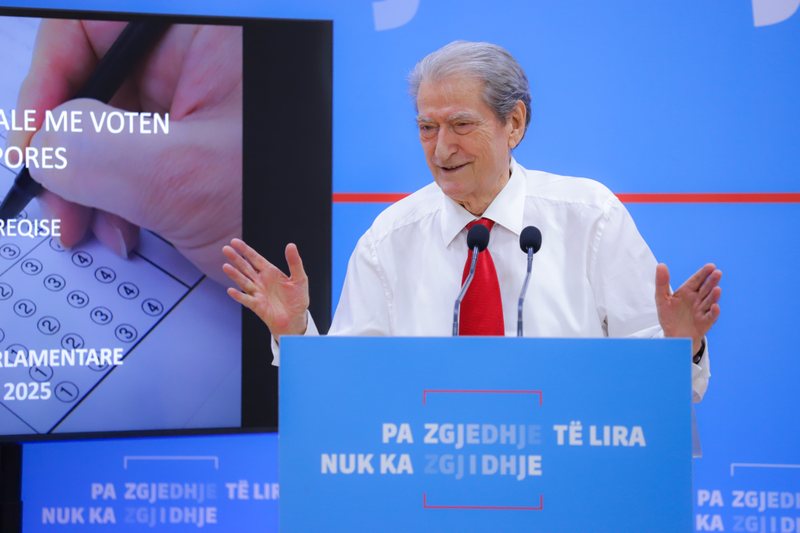Berisha threatens protests in September as Democratic Party rejects May 11 election results

The Democratic Party is gearing up for a tense autumn, with its leader Sali Berisha vowing to return to the streets in protest against what he calls a “narco-state” following the May 11 elections, which the party refuses to recognize. Citing unsubstantiated widespread vote manipulation, particularly of diaspora ballots, Berisha says mass mobilization is the only path left to reclaim free elections in Albania.
Why is this important: According to the Democratic Party’s own statute, any party leader who loses elections must step down. But Berisha—who spent years reclaiming control of the party from former leader Lulzim Basha—has no intention of doing so. Rejecting the legitimacy of the elections and launching protests now appear to be his only strategy for justifying his continued leadership in the eyes of party members.
Context: Berisha claims to have new evidence of electoral fraud involving overseas ballots, alleging that some were delivered by DHL just one or two days before, or even after, election day. The party has yet to decide whether it will participate in upcoming partial local elections in three municipalities left without mayors after officeholders resigned to run for Parliament. However, Berisha has already dismissed any such vote under Prime Minister Edi Rama as a sham: “Every electoral process under Rama is a farce. Whether we take part or not will be decided later.”
What else: Berisha also avoided commenting on possible leadership reshuffles within the party, including the future role of Ervin Salianji, who was released from prison this week after serving a sentence for making false accusations against the brother of former Socialist Interior Minister Fatmir Xhafaj. Instead, Berisha called Salianji a “political prisoner” and vowed to take the battle for justice all the way to the European Court of Human Rights in Strasbourg.


